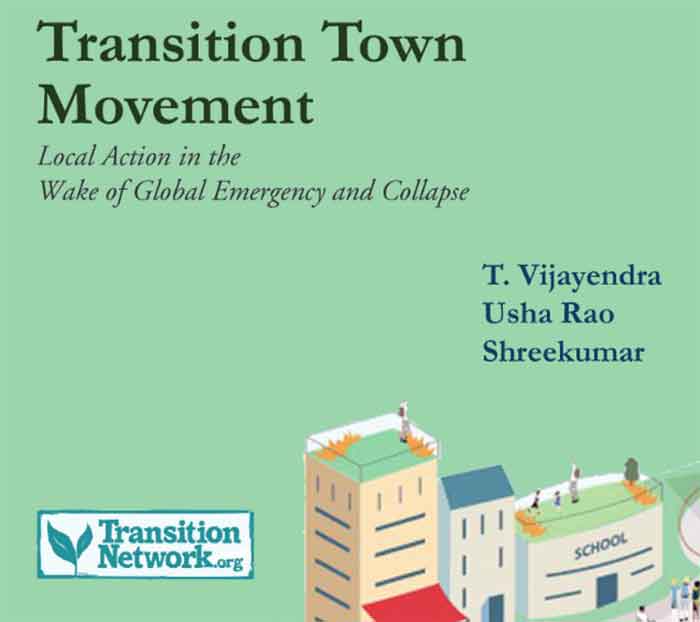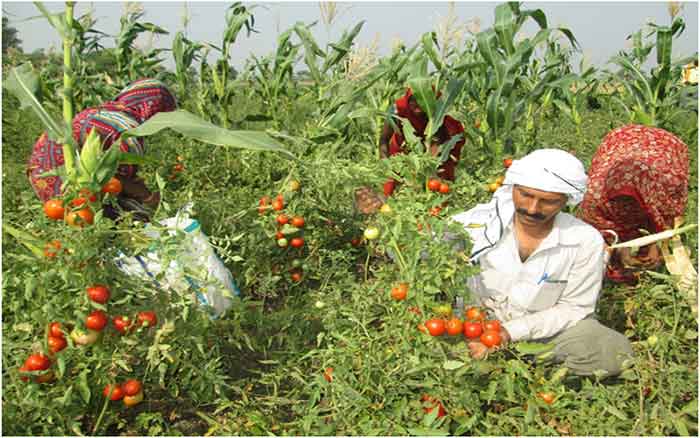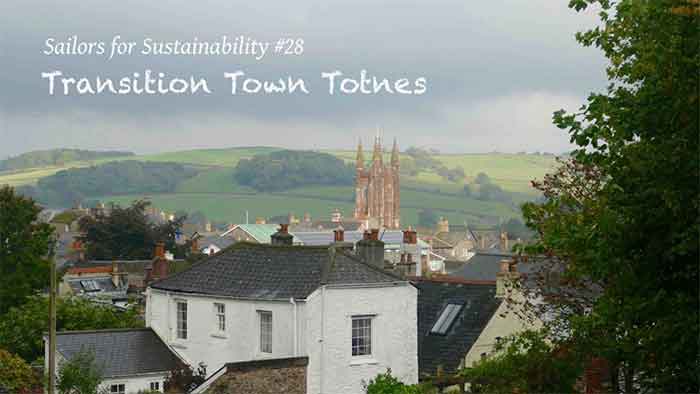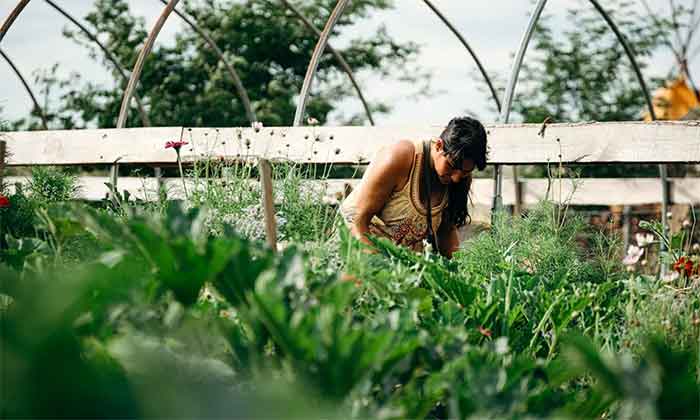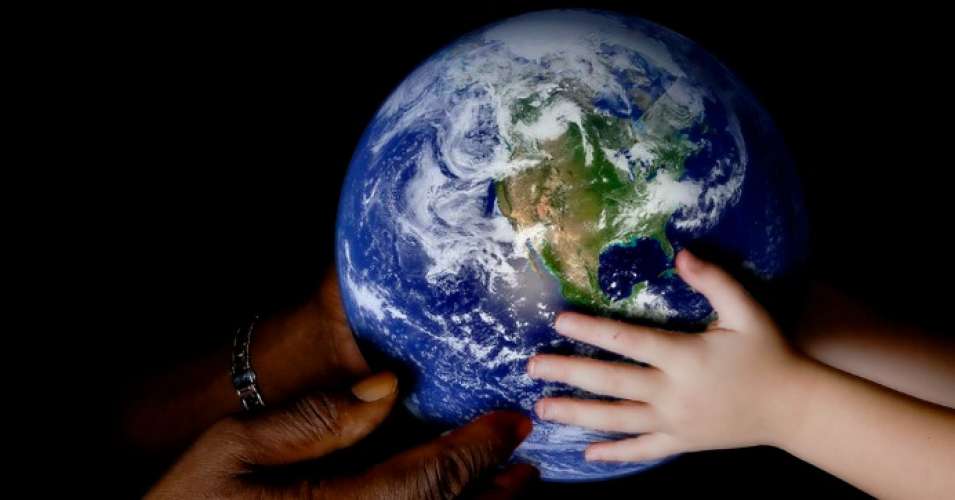
Introduction: The Transition Towns Movement
In the year 2005, our capitalist societies saw the inception of a movement called ‘Transition Towns’. This is a grassroots network of communities that are working to build resilience in response to Peak Oil, climate change, food insecurity and economic instability. ‘Transition Towns’ is a catchphrase for environmental and social movements founded upon the principles of Permaculture, which originally denoted ‘permanent agriculture’. Today, Permaculture has come to mean a whole life system encompassing various strategies for people to acquire all the necessary resources, including access to land needed to evolve self-financing and self-managed systems to provide for all their material and non-material needs, without depleting, polluting and destroying the natural resources of the biosphere. The Transition Towns movement is an example of socio-economic localisation. There are over 1000 communities recognised as official Transition Towns in the United Kingdom, Ireland, Canada, Australia, New Zealand, the United States, Italy and Chile.
Central to the Transition Town movement is the idea that a life without oil could in fact be far more enjoyable and fulfilling than the present: “[B]y shifting our mindset we can actually recognise the coming post-cheap oil era as an opportunity rather than a threat, and design the future low carbon age to be thriving, resilient and abundant — somewhere much better to live than our current alienated consumer culture based on greed, war and the myth of perpetual growth.”
(‘Post Carbon Society and Transition’by T. Vijayendra, unpublished mss. Most of the material in this introduction is paraphrased from the Wikipedia article on ‘Transition Town’: https://en.wikipedia.org/wiki/Transition_town.)
Where are we today?
We have all grown up in times when there appears to be a great abundance of resources. We have grown up with the feeling that there is plenty more where it came from — be it water, be it gas for fuel, be it petrol for transport, and so on. And we are constantly in the mode of continuing to expand our needs without any felt need to discriminate about ‘how appropriate it is’ or even to think whether there is more to all this. Even the most poor and frugal — just to be able to survive in the current culture — consume a lot more than our forefathers did 2-3 generations ago. We have to bear in mind that our very thoughts and worldview, which will be the basis from which our action springs, is rooted in this roller-coaster destructive culture.
We have become used to getting many things at the flick of a switch, at the turn of a key, or at the click of a button. Our needs —physical, emotional and social — are extremely scattered. We are rarely relating to what is immediately around us. We do most of our relating with people who are located far away. We need things to be transported from far off to meet our daily needs. We do not even consider if we really need these things and whether they are good for us or the people who are producing them and marketing them to us. We have no awareness of how those things reach us. We remain unaware that electricity — something we cannot imagine living without — may be coming to us at the cost of the great tragedy of the displacement of millions of people. We do not think of what is happening to the entire farming community that provides us our daily food. As to the people with whom we share this earth and by whose efforts we are sustained, we do not connect with them at all.
We have been schooled to alienate ourselves from our families, our communities and our land. To what end? Only to be caught in a narrow economic trap in which we all slave for a section of society that charts out this path of destruction. We have foregone our space for functioning responsibly in lieu of the salaried jobs that consume our lives, our space to live and our ability to function as part of a caring and sharing community. In effect, our vision has been reduced to a picture of ourselves — a selfie — filling up our minds, with only ‘Me’ existing, to the exclusion of all else!
What should we do about it?
There is much that we can learn from the Warli community, one of the many tribal communities in India which live ecologically sustainable lives. The celebrated Warli paintings give us a glimpse of their worldview, in which each person lives in harmony with all other human beings, as well as with all plants and animals.
Dr. Venkat(1923-2011) was a guru and mentor to many who took up agriculture on ecologicalprinciples. If one had a problem in farming or a query on, he had a fairly good answer to it. Never assertive, he like a good scientist, would only state what was probably correct. To the very end he practiced permaculture in his little home garden.
I would like to share some ideas of Dr. Venkat that are important to this discussion and mark an important starting point in our quest for sustainability. To quote “If humans do have a destiny, a natural destiny, it is to sustain life on this planet. If this be so, then our need is a renaissance in agriculture, through nursing a robust peasantry which will restore the losses of quality and health of our soils, the health of our plants and animals, and the health of humans and all other non-human forms of life. The health of all these is a single connected chain. Loss of a single link will result in the loss of the chain itself.” (‘On A Perspective for Renaissance of Agriculture’ by Venkat, A presentation made on 14-02-2003 – Hyderabad, India.)
The health of soils is the foundation for the health of all forms of life. If this is central to our planning for livelihoods and human resources, then what are the implications? Doing this would require that most people live a community-based grounded existence. This means that we must reject jobs provided by someone far away and refuse to be drawn into an alienated existence. It would require that wherever we live, we do so deeply connected to the people around us and to the natural resources of air, water, soil fertility, biodiversity of flora and fauna, and a community of people rich in skills and capacities of nurturing, building, using and living bytheir available set of natural resources.
Our first task then is to collectively tend and nurture our people and our natural resources.
Local Action
We would need to work out what our ideal unit of action would be. In rural areas, a watershed makes a good connected unit. In a city we would have to work it out. A municipal ward can, maybe, work as a primary functional unit.
Each and every person who is the least bit serious about this has to ground herself, root herself in a community. This is needed to gather knowledge, understanding, capacity, strength and motivation, and for positioning oneself to address the converging crises of failing politics, depletion of mineral resources and the alarming state of our natural resources. Depleted and poisoned soils would need to be nursed back, dangerously receding water tables would have to be rejuvenated. It is possible to address these issues and bring back a state of abundance if we organise ourselves to do so.
Human Resources
The other area we need to work on is to train and nurture the right kind of human resources. We need to be people who would belong to the place, would take care of it, and would live with it, as part of it, while also nurturing others to play the same role. By place I mean a physical space, the people it contains and all that is happening there. We would need to start a process of community self-education, beginning with ourselves.
School as a Hub for Transition
Schools should become the hub for Transition. The first Transition Town originated when a school permaculture teacher set a project for students to plan for a fossil fuel-free life in their town and how to move step by step, year by year, from the current heavy dependence on fossil fuels.
This would mean a sea change in the way schools function. Most of the school’s activities should be devoted to transition. Schools would need to be entirely neighbourhood schools with a great degree of integration between the school and the community.
In the initial phase, the school will conduct a series of local surveys about the status of resources, their use and abuse and their sustainability, and what we as a community are doing with our natural resources. This information should be presented to the local community on a regular basis and should also be brought out as a regular newsletter. This would help us to be informed and to build the capacity to address the problems that confront us. This would make for the initial phase of Transition work. Done well, it should lead to a series of activities and the formation of many groups working on different aspects of Transition.
This would be unlike existing curricula where knowledge generated somewhere far away is studied for academic requirements and interest and does not entail any action. When school is a Transition Hub, knowledge — about our community and its resources, situations, problems and strengths — becomes important and would naturally flow into action. Instead of knowledge for individual achievement, it would be for exercising our capacities and building them for collective well-being. Teachers and children would actually be learning together and learning things which are significant for their lives. School and community would be deeply connected. School as a Hub for Transition would have to be a neighbourhood school totally covering the neighbourhood population.
What will we find?
We will find that our space for acting responsibly has been undercut by centralised structures. We would need to create the ground to have space for functioning responsibly. We will find that our problems are collective ones and can only be solved collectively. We will find that individually cornering resources is destructive and a pointless waste of energy. We will find that we need to move towards local production and local consumption. We will find that we need all our labour to take care of our collective resources and for taking care of our people. In this process, we cannot have the time or mind for doing alienated jobs.
We will find that life would feel good, very secure, very light, very enjoyable, very meaningful, when we function as part of a ‘Commons’ directed towards cherishing and nurturing our Commons. In taking care of everything and everybody, we would also be taken care of at the individual level. .
A wholly new way of living — of genuinely living — where our lives are not consumed by paid jobs and alienated labour — will emerge.
Usha Rao (1961-) was born in Khadki, a cantonment town near Pune. She did her schooling in Kendriya Vidyalaya, her Maths Hons from Calcutta and post graduate diploma in rural management from Institute of Rural management Anand. For the last 18 years she has been working on land, initially in Telangana and now since the last 6 years in Chikkaballapur, Karnataka. She finds it delightful to play tag with nature at making soil come alive and to get soil onto a growing fertility cycle. She is seriously worried that we are not making a society that can keep that cycle going.
You can reach her: [email protected]

